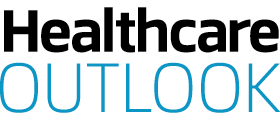Ensuring the health and well-being of the South African Police Service (SAPS) is critical for the continued prosperity of the country. Neo Khauoe, Principal Officer, tells us how the South African Police Service Medical Scheme secures the safety of the nation through provision of healthcare to SAPS.
HEALTHCARE FOR A SAFER SOUTH AFRICA
The South African Police Service Medical Scheme (POLMED) was established in 1967 to provide healthcare services and cover consequential costs for active and retired SAPS employees.
“We are committed to our vision of ‘healthy members for a safer South Africa’ (SA), which is supported by our mission to enable quality healthcare for SAPS members and their dependants in a cost-effective manner,” introduces Neo Khauoe, Principal Officer of POLMED.
In recent years, the medical scheme industry in SA has faced many challenges, such as rising healthcare costs, fraud, waste, abuse, the burden of disease, and the need to ensure financial sustainability.
In this context, the affordability of health plans continues to be an issue for both medical schemes and their members, which is the result of worsening economic challenges and increased levels of unemployment.
This has manifested through the amalgamation and liquidation of medical schemes across the country. In 2000, there were 135 medical schemes, however, as of December 2023, only 72 remained active.
On the contrary, POLMED has shown significant growth in recent years, demonstrated by a consistent increase in the number of principal members.
Although the Scheme has faced difficulty in levying premiums that match medical inflation, the organisation mitigates this issue with a well-planned investment policy that addresses both the sustainability and liquidity basket, thus protecting reserves, growing solvency, and pay increasing claims.
Alongside the Scheme’s thorough investment policy, POLMED’s other initiatives include tariff negotiations with healthcare providers, fraud and waste management, engagement with industry bodies, as well as many other preventative healthcare initiatives.

PROVIDING CRITICAL SUPPORT
The organisation’s vision encapsulates the significance and importance of the Scheme.
Firstly, the nature of police work often exposes officers to various physical and mental health risks, given their frequent exposure to dangerous situations, violence, and traumatic events.
Due to the impacts this can have on officers’ well-being, it is essential that they have access to comprehensive healthcare services that can address their specific needs. As such, POLMED offers the necessary care, comprising preventative measures, medical treatments, and mental health support.
Secondly, the physical demands of police work can lead to injuries and health issues caused by hyper-active daily tasks.
Consequently, the Scheme ensures that officers can receive medical treatment and rehabilitation services that heal injuries promptly and effectively. Thus, by receiving the right care, police officers can recover and return to their duties as quickly as possible.
Additionally, police officers may experience post-traumatic stress disorder (PTSD), depression, or anxiety due to high levels of stress and emotional trauma.
It is therefore vital for POLMED to provide mental health support services so that officers can better manage potentially distressing events and prevent the long-term consequences associated with untreated healthcare conditions.
“We maintain that specialised health benefit plans – specifically designed for police officers, considering their occupational risks, health needs, and duty-related injuries – are indispensable. These plans must provide comprehensive coverage and are best delivered through a medical scheme,” asserts Ms Khauoe.
Providing the appropriate care through a dedicated medical scheme benefits the individual officers and overall functionality of the police force, as well as security services at large.
“We are committed to our vision of ‘healthy members for a safer South Africa’, which is supported by our mission to enable quality healthcare for SAPS members and their dependants in a cost-effective manner”
Neo Khauoe, Principal Officer, South African Police Service Medical Scheme
ENSURING LONG-TERM HEALTH
POLMED offers its services via two plans – Aquarium and Marine. The latter is the largest of the two, attracting 61 percent of the principal members registered with the Scheme.
The Marine plan is the organisation’s flagship programme, where members enjoy greater benefits than the baseline requirements stipulated by the Prescribed Minimum Benefits (PMBs), which dictate the benefits given throughout the South African medical scheme industry.
For instance, this year, Marine contributions for a principal member or adult dependent will range from ZAR474 to ZAR1,497 per month, and Aquarium contributions will range from ZAR117 to ZAR403.
Meanwhile, members’ contributions for a child dependent range from ZAR50 to ZAR190 under the Aquarium plan, and ZAR118 to ZAR656 in the Marine programme. This demonstrates the extent to which POLMED prioritises affordable healthcare services, making care more accessible when compared to other providers.
In response to changes in the industry, the Scheme is transitioning from a therapeutic traditional medical scheme focused on the payment of claims to an integrated wellness organisation.
As a result, POLMED is centred around the prevention of illnesses, as well as early diagnosis and intervention to avoid any long-term illness and reliance on the organisation.
“This approach aims to keep members healthier for longer, extend their productive lives, and reduce costs. This leads to lower contribution increases, as well as enhanced benefits – a win-win for the Scheme’s members,” explains Ms Khauoe.
A further challenge POLMED is diligently overcoming is the deterioration of the general health profile in SA, compounded by limited healthcare access to hospitals and specialists.
In response to this, the Scheme is pursuing wellness-based health management in the form of a Member Engagement and Experience Division, which became operational in 2023. The division’s focus is on educating members in the self-management of specified diseases and healthcare issues.
Meanwhile, in the hope of launching Scheme-owned physical health facilities, POLMED’s Board of Trustees (BoT) is processing a transition in the Scheme’s business model from a fully-fledged insurance scheme to one that incorporates aspects of a Health Maintenance Organisation (HMO).
The primary difference between an insurance health model and an HMO is that the latter insources and focuses more on primary and preventative measures to ensure members remain healthy and avoid long-term, costly hospital admissions.
“The facilities will enable the Scheme to focus on preventative care, early diagnosis, and intervention, and will serve to support members with administrative queries.
“The successful implementation of Scheme-owned facilities should result in improved health outcomes as well as better management of healthcare costs,” Ms Khauoe adds.

PLANNING AHEAD
POLMED has identified several risks as well as opportunities emanating from policy and industry developments, most notably from the recent introduction of the National Health Insurance (NHI) bill from the South African government.
Although this is an attempt at improving the affordability and accessibility of healthcare, it also dictates uncertainty over how medical schemes will operate once the bill is enacted, further deteriorating the affordability of healthcare.
POLMED has identified three strategic goals for the next five years, namely Scheme sustainability, quality healthcare for beneficiaries, and sound relationships with stakeholders.
As part of its forward-thinking strategy, the organisation is also focusing on technology integration to monitor and study the impact of healthcare interventions and make early adjustments where necessary.
In instances where POLMED maintains healthcare partnerships, technology integration could also be used to help facilitate reimbursement models based on healthcare outcomes. Therefore, technology integration will be pivotal in the delivery of quality healthcare for beneficiaries.
“A POLMED beneficiary is not only a patient, but by participating in technology devices to gather data, is a partner in the delivery of a healthcare value chain.
“Relations between beneficiaries, healthcare providers, and the Scheme will be enhanced through collaboration on our auditable central data portal,” comments Ms Khauoe.
In this way, POLMED will add objective and measurable indicators of sound relationships with stakeholders.
“Our strategy etches the sustainable role of medical schemes and a long-term positive contribution to the achievement of universal healthcare coverage. Successful implementation of the POLMED strategy will make the Scheme a centre of excellence,” she adds.
“Our strategy etches the sustainable role of medical schemes and a long-term positive contribution to the achievement of universal healthcare coverage”
Neo Khauoe, Principal Officer, South African Police Service Medical Scheme

AFFORDABILITY AND ACCESSABILITY
As a non-profit organisation, POLMED’s primary purpose is to promote affordable access to healthcare services.
Additionally, the scheme strives to incorporate environmental, social, and governance (ESG) practices through energy efficiency and an environmental management system. In order to maintain a green building status, it also advocates for paper recycling and reduced paper usage across the business.
The Scheme integrates social elements by implementing equal opportunity access to employment and procurement programmes that are aimed at promoting economic participation and correcting gender and racial imbalances. This is demonstrated by the fact that the company possesses a 70 percent female staff base.
POLMED also provides internship opportunities to the children of ‘fallen heroes’ – SAPS members who passed away whilst on duty.
“The Scheme works closely with SAPS and labour unions, including the Police and Prisons Civil Rights Union (POPCRU) and South African Policing Union (SAPU), to understand the demanding realities of police work and serve as a community anchor for our members’ medical needs and their holistic well-being,” Ms Khauoe emphasises.
Furthermore, the governance element of ESG is encouraged by developed risks and ethics management programmes for members of the Scheme.
As such, ESG is embedded throughout POLMED’s business practices and remains a top priority for the BoT as they look to develop the organisation’s investment strategy.
POLMED is of the utmost significance for SAPS officers, as the Scheme ensures that they are protected from financial catastrophe and receive the right care by addressing their specific physical and mental health needs.
By providing comprehensive healthcare services, POLMED plays a crucial role in supporting the well-being of police officers and providing financial support for catastrophic expenses.

























